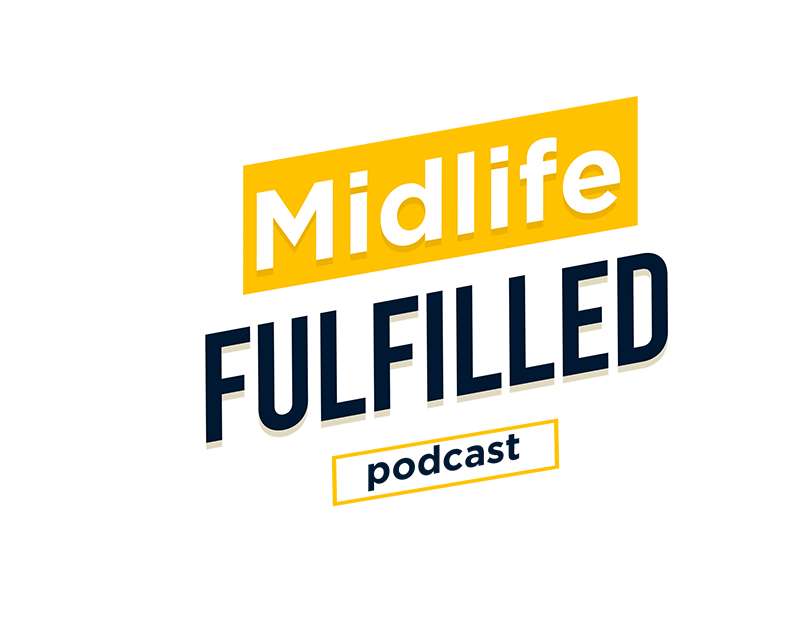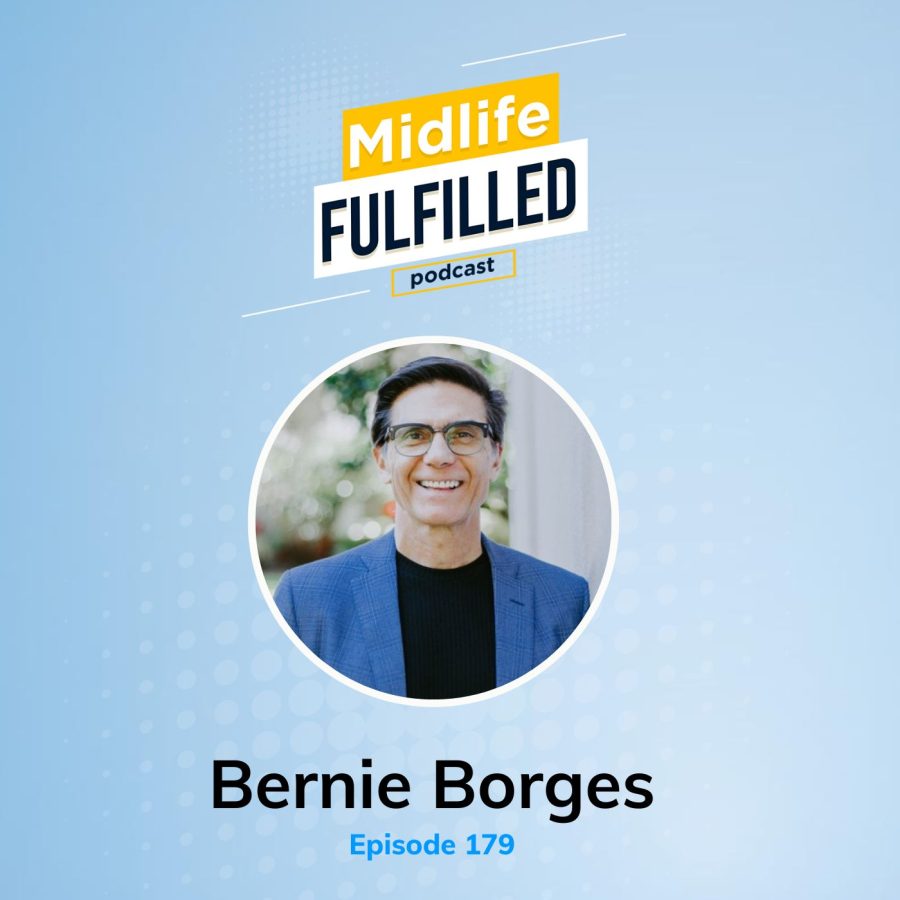Bernie Borges [00:00:00]:
Hello, my midlife friend. This is Bernie Borges, your host of the Midlife Fulfill podcast, and this is episode 1 79. A takeaway episode from episode 178, my conversation with Art to Rock. You know the drill on takeaway episodes. I summarize the key discussion points from the previous episode, and then I hone in on one key takeaway that I want to share and emphasize to you. And then, I issue you a challenge to consider on this topic. So first, let me begin as I always do by reintroducing you to Art Tarak. Art Tarak is an elite performer in not one, but two fields, business and sports slash fitness.
Bernie Borges [00:00:45]:
For 3 decades, as an entrepreneur, Art has been a speaker to over a 125 of the Fortune 500 companies. Very impressive. Art has also enjoyed a 13 year career in Masters Track and Field. In 2015 and 2016, his pentathlon scores at the USA Track and Field Masters Championship earned him a bronze and silver medal, as well as number 8 world rankings for his age group in his fifties. How impressive is that? In 2016, Art began what he calls a bold experiment in, are you ready for this, demolishing comfort zones. I love that. And by 2021, Art had conducted over 800 of these experiments. You see, comfort zone demolition is Art’s favorite lifestyle habit.
Bernie Borges [00:01:41]:
Now, there were 3 key discussion points from our conversation on episode 178, and I just wanna summarize them here before I get to my takeaway. Number 1. The concept of deliberate practice. Art explains that deliberate practice isn’t just repeating the same practice over and over. No. Deliberate practice involves pushing yourself outside of your comfort zone and continuously working on skills to achieve higher competency and more than anything else, growth. Number 2, accountability. Art shares his philosophy on accountability and how traditional methods of holding people accountable often lead to blaming and rationalizations.
Bernie Borges [00:02:25]:
Instead, Art emphasizes inviting accountability through a series of questions that challenge individuals respectfully to assess their behaviors and their mindsets in relation to their desired results. And number 3, Colossal deception. Oh, this is a big one. Art explains the concept of colossal deception as the tendency to prioritize immediate comfort over long term goals. Art shares strategies for reframing mindsets and focusing on passionate values to overcome this deceptive mindset. Now, my takeaway from my conversation with Art Tarak on episode 178 is anchored in honesty, and I’m referring to being honest with yourself. Yes. Honesty.
Bernie Borges [00:03:22]:
I bet you didn’t see that coming. Right? You didn’t see that coming. Well, as I thought about these 3 discussion points, I could have easily just honed in on one of them. But the truth is, I am reminded that we can choose to be honest with ourselves or not. The thing is, if we’re not honest with ourselves, no one else knows. But when we’re not honest with another person or a group of people, you may or may not be outed in your dishonesty. And while it’s immoral to be dishonest with other people, obviously, my conversation with Art suggests to me that being dishonest with oneself is in its own way unethical. Now, not literally, but in the sense that you’re cheating yourself.
Bernie Borges [00:04:09]:
And when you cheat yourself, you potentially cheat others. Why? You ask. Well, because if you cheat yourself, you may not reach elite performance at whatever capacity you can. And, that means that the people who would be affected by your elite performance would not benefit from it because you didn’t attain it. Now, this leads me to a thought on elite performance. I love this phrase, but I also think it can be intimidating for some people. I’m probably not the only one who, when you think about Elite Performance, you think about people like LeBron James, Wayne Gretzky, Tom Brady, Taylor Swift, Beyonce, Jeff Bezos, Elon Musk. Now, these are famous athletes, superstar artists, superstar business people, and you know what? My friend, these are extreme examples of elite performers.
Bernie Borges [00:05:10]:
Really extreme. But, no, friend. Your elite performance is unique to you. You nor I need to be a LeBron James or a Tom Brady or a Taylor Swift to be an elite performer. No. We don’t. Nor is being an elite performer limited to your career. Hear me out on that.
Bernie Borges [00:05:34]:
You can be an elite performer in your family, in your community, in your fitness routine, really in any setting that’s a meaningful part of your life. So don’t limit this concept of elite performance to just being an elite performer in just your career. That’s very limiting, and it’s short changing. In other words, you would be cheating yourself if you limit your effort of elite performance only to your career. So I wanna come back to the 3 key discussion points, and I’m tempted to riff on all three of them because I believe strongly in accountability, and I love the principle of deliberate practice, not just going through the motions. But I wanna hone in on the concept of colossal deception. I love that phrase. And I appreciate that art has labeled this in such a dramatic fashion.
Bernie Borges [00:06:29]:
And you know, I think to one degree or another, that we’re all guilty of colossal deception. Art says that colossal deception is when we take the easy road, when we prioritize short term benefit over long term goals. As you know, I like to share personal stories on my takeaway episodes, and this one is no exception. So I’m gonna reshare briefly a story that I told you in a previous episode that relates to this concept of colossal deception, specifically where I avoided colossal deception. Gonna take it way back to my twenties. I had completed an associate’s degree, and I went to work full time, as in full time. But I knew I still wanted to complete a bachelor’s degree. But once I was working full time, I obviously couldn’t attend classes during the day.
Bernie Borges [00:07:23]:
So I had a choice to make. Either I would choose the comfort of going to work every day 9 to 5 and enjoy the freedom of my nights and weekends, but not attain my bachelor’s degree. Or I could attend college classes on nights and weekends and eventually complete my degree. Well, I chose the latter because of my passionate values. I wanted to complete my bachelor’s degree. Now that choice required me to attend classes 2 evenings a week, 12 months a year, as well as manage my time on the other evenings and the weekends to do the work associated with these classes. Now, art makes a distinction between having an interest in something and having a commitment in something as I had the commitment to complete my bachelor’s degree. And are you are so spot on with that distinction.
Bernie Borges [00:08:26]:
Because of my commitment to complete my bachelor’s degree, I put in the time and the work, evenings and weekends, for 4 straight years. Four straight years. No time off. I was 20 when I I got my associate’s degree, and then I was 24 when I completed my bachelor’s degree. And look, the 4 years of a, quote unquote, elite performance on my part were not easy, my friend. I had many moments of doubt. In fact, there were many others in my life, including my own parents, that doubted that I would stick with it and finish my goal. But, I was committed to my goal, and that commitment is what kept me going all the way to the finish line.
Bernie Borges [00:09:06]:
And, I did. I completed it. I got my bachelor’s degree. Now, I can think of other examples in my life that can qualify as a quote unquote elite performance. But, hey, don’t worry. In the interest of time, and probably boring you, I’m gonna spare you those examples. But you know what? I can also think of some times where the colossal deception won, and I didn’t choose fulfillment, and the result is I didn’t achieve an elite performance in those instances. You know, most of us can look backward and recognize some elite performance in our life, and also maybe recognize where colossal deception won out, robbing us of an elite performance achievement.
Bernie Borges [00:09:47]:
So I choose not to beat myself up over the colossal deceptions. Instead, I appreciate the elite performances. But how about you? How about you? My challenge to you my friend is to be honest with yourself. Reflect on your life and give yourself the gift of recognizing the elite performances in your life. Also, recognize those times when colossal deception did win out, and learn from it as I have. By learning from those moments, we’re better equipped to be honest with ourselves when we next face a moment of truth where we have to answer that question. Am I interested in doing this thing, or am I committed to it? You know, the only right or wrong answer is up to you. You’re the only one that can make that choice.
Bernie Borges [00:10:43]:
Hey, I wanna thank Art Turok for joining me on episode 178, where he inspires us to separate ourselves from the rest of the pack, aspiring to be an elite performer by embracing methods like deliberate practice and accountability and reframing mindsets to prioritize long term goals over short term comforts. In other words, overcoming colossal deception. And I want to remind you that you can watch my video recording with Art Tarak on episode 178, on the Midlife Fulfilled YouTube channel. And that, of course, is linked up in the show notes page. Hey. My next guest episode features David Altman. Dave is chief research and innovation officer at the Center For Creative Leadership. CCL was founded in 1970, and its mission is to advance the understanding, practice, and development of leadership for the benefit of society worldwide through training, events, thought leadership content such as research, and a whole lot more.
Bernie Borges [00:11:47]:
Dave’s credentials are very impressive, and he joins me for an insightful conversation on the meaning of leadership. You don’t wanna miss this episode. And, hey, if you’re a new listener, first, welcome, and I invite you to hit that subscribe button so that you won’t miss this next episode as well as future episodes. You know what time it is my midlife friend. It’s that time when I remind you that if you’re 80% fulfilled, you’re doing great. And if you wanna know how I know this, you guessed it. I have a scorecard for that. Hey.
Bernie Borges [00:12:24]:
I’ll see you on episode 180. I’ll see you then.






